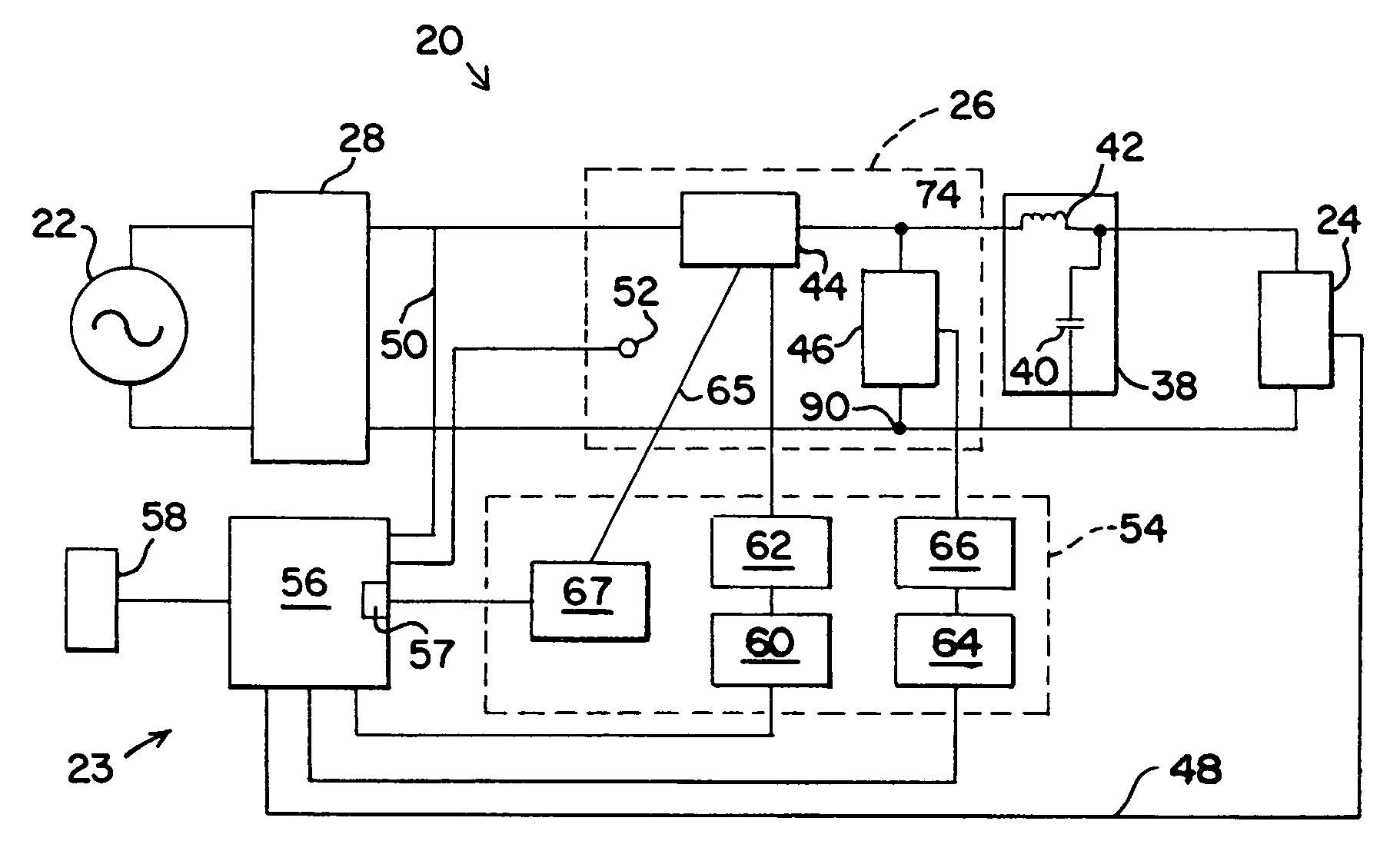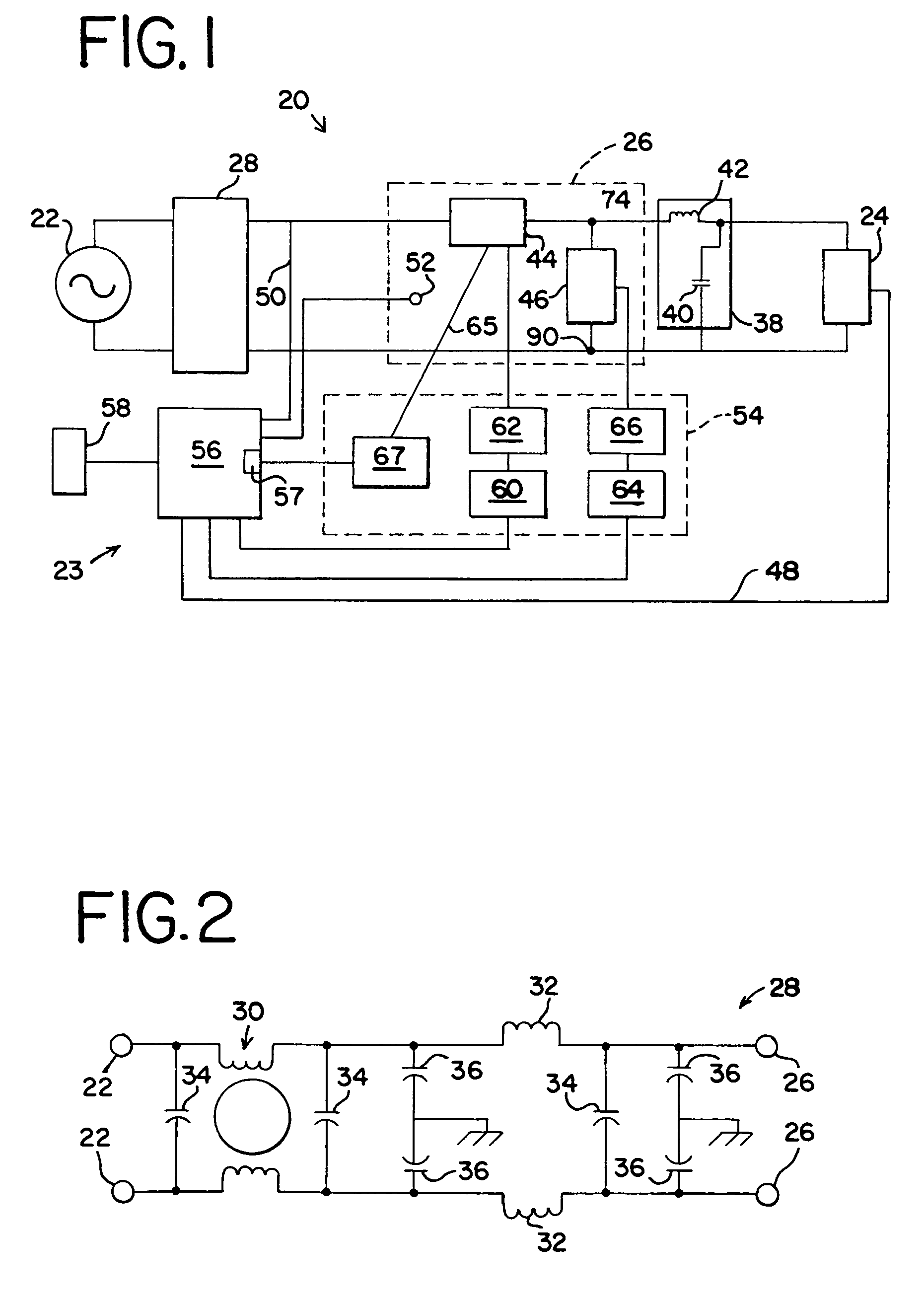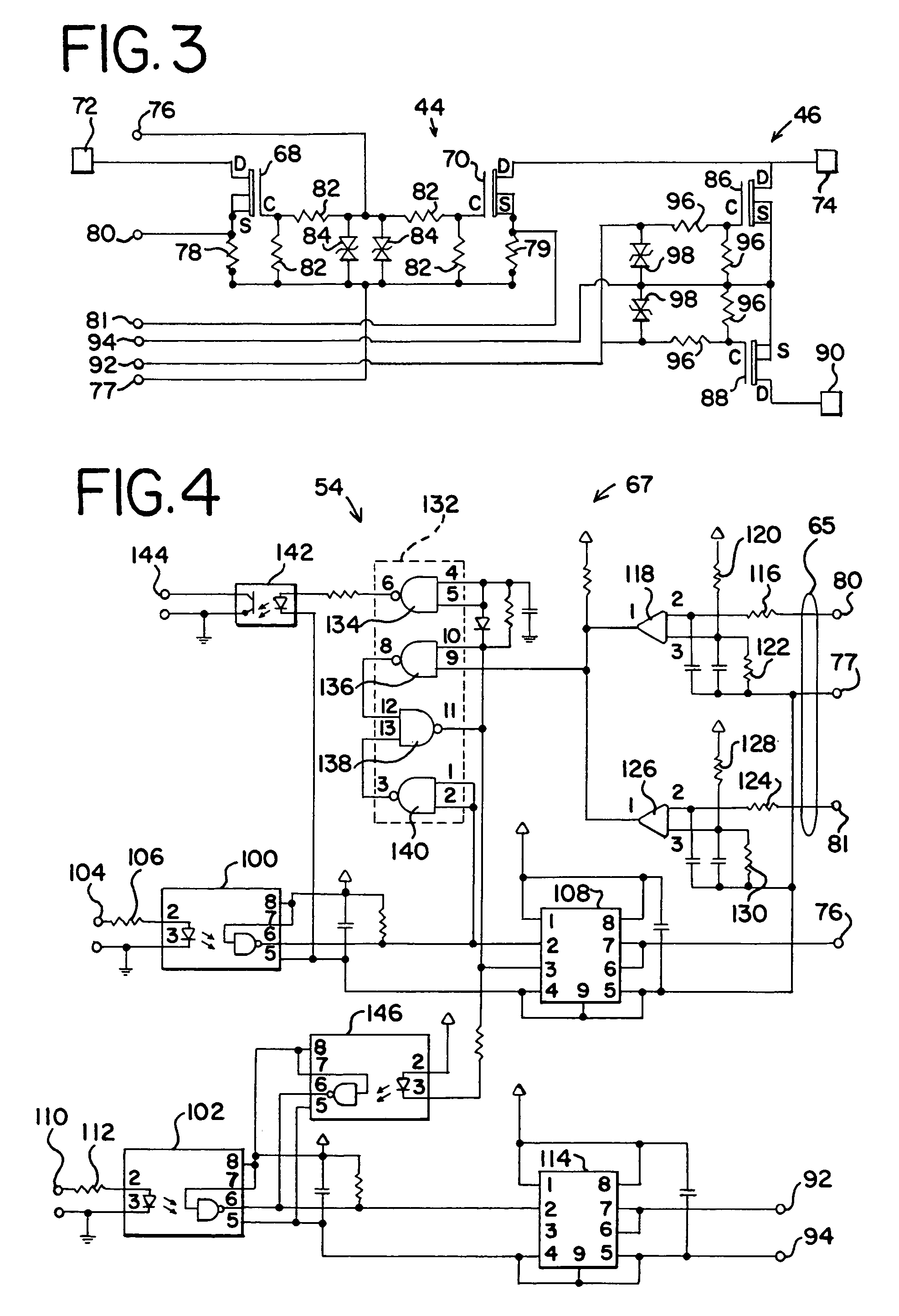Overcurrent protection for solid state switching system
a solid-state switch and overcurrent protection technology, applied in the direction of dynamo-electric converter control, non-printed jumper connection addition, instruments, etc., can solve the problems of electrical noise and mechanical filament noise, noise incident to phase angle dimming can be unacceptable, and require extensive filtering, so as to improve overcurrent protection and quickly interrupt current flow
- Summary
- Abstract
- Description
- Claims
- Application Information
AI Technical Summary
Benefits of technology
Problems solved by technology
Method used
Image
Examples
Embodiment Construction
[0024]Having reference now to the drawing, FIG. 1 is a simplified block diagram of a sinewave dimmer designated as a whole by the reference character 20 having a solid state power switching stage 26. In accordance with the present invention, the switching stage 26 is protected by an overcurrent protection system constructed in accordance with the principles of the present invention and generally designated as 23.
[0025]The dimmer 20 is connected to a conventional mains power supply 22 providing a sinusoidal alternating current power supply waveform of, for example, 60 hertz and nominal 120 volts ac. The dimmer 20 provides output power to a load 24. In a typical application, the load 24 may be a resistive load such as an incandescent lamp, or a reactive load such as a power supply for a gas discharge lamp or fluorescent lamp. The power switching stage 26 uses pulse width modulation (PWM) to attenuate input power and supply reduced output power to the load.
[0026]An input line filter 28...
PUM
 Login to View More
Login to View More Abstract
Description
Claims
Application Information
 Login to View More
Login to View More - R&D
- Intellectual Property
- Life Sciences
- Materials
- Tech Scout
- Unparalleled Data Quality
- Higher Quality Content
- 60% Fewer Hallucinations
Browse by: Latest US Patents, China's latest patents, Technical Efficacy Thesaurus, Application Domain, Technology Topic, Popular Technical Reports.
© 2025 PatSnap. All rights reserved.Legal|Privacy policy|Modern Slavery Act Transparency Statement|Sitemap|About US| Contact US: help@patsnap.com



